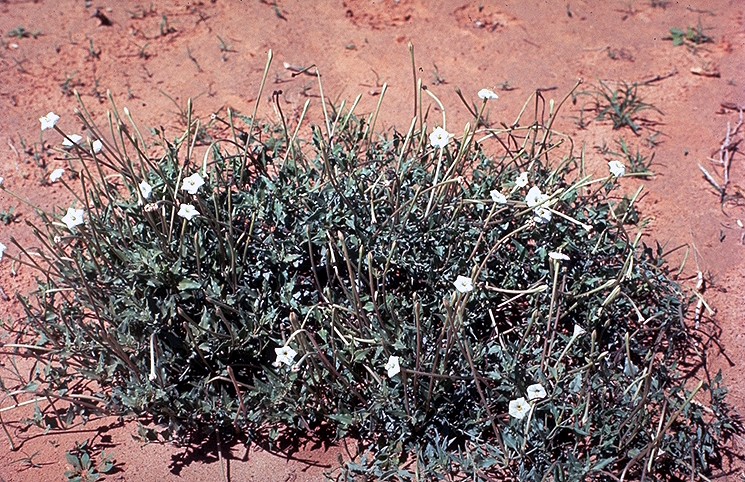Angel’s Trumpets: A Fragrant Native Beauty for Desert Gardens
Looking for a low-maintenance native plant that brings evening magic to your garden? Meet Acleisanthes longiflora, commonly known as angel’s trumpets – a delightful perennial that’s perfectly suited for water-wise gardening in the American Southwest.
What Makes Angel’s Trumpets Special
This charming native forb herb brings a unique appeal to desert landscapes with its small, trumpet-shaped white flowers that release their sweet fragrance as the sun goes down. Unlike many garden plants that put on their show during the day, angel’s trumpets save their best performance for evening hours, making them perfect for patios and outdoor spaces where you like to relax after work.
As a true native of the southwestern United States, this perennial has spent centuries perfecting its survival skills in harsh desert conditions. That translates to a remarkably easy-care plant for modern gardeners who want beauty without the fuss.
Where Angel’s Trumpets Call Home
Angel’s trumpets are native to four southwestern states: Arizona, California, New Mexico, and Texas. This regional native status makes it an excellent choice for gardeners in these areas who want to support local ecosystems while creating stunning landscapes.
Perfect for Water-Wise Gardens
If you’re designing a xeriscape garden, rock garden, or native plant landscape, angel’s trumpets deserve a spot on your plant list. Here’s why they work so well in these settings:
- Extremely drought tolerant once established
- Thrives in poor, rocky, or sandy soils
- Requires minimal care and no fertilization
- Provides ground cover without being aggressive
- Adds evening fragrance to outdoor spaces
Supporting Night Pollinators
One of the most compelling reasons to grow angel’s trumpets is their role in supporting nocturnal pollinators. While many gardeners focus on daytime pollinators like bees and butterflies, night-flying moths and other insects also need our help. The evening-blooming, fragrant flowers of angel’s trumpets provide crucial nectar sources for these often-overlooked pollinators.
Growing Angel’s Trumpets Successfully
Ready to add this native beauty to your garden? Here’s what you need to know:
Climate Requirements
Angel’s trumpets are hardy in USDA zones 8-10, making them suitable for most areas within their native range and similar climates.
Ideal Growing Conditions
- Full sun exposure
- Well-draining sandy or rocky soil
- Minimal water once established
- No supplemental fertilization needed
Planting and Care Tips
Plant angel’s trumpets in spring after the last frost. The most critical factor for success is ensuring excellent drainage – this desert native cannot tolerate soggy conditions. Water sparingly during the first growing season to help establish roots, then reduce watering significantly.
Don’t be alarmed if your plants seem to disappear during the hottest part of summer – they may go dormant to conserve energy, returning when conditions become more favorable.
Is Angel’s Trumpets Right for Your Garden?
Angel’s trumpets are an excellent choice if you:
- Live in the southwestern United States
- Want to support native wildlife and pollinators
- Prefer low-maintenance gardening
- Are creating a water-wise landscape
- Enjoy evening garden fragrances
However, they may not be the best fit if you garden outside their natural range, prefer lush tropical landscapes, or want showy daytime flowers.
For gardeners in the Southwest looking to create sustainable, wildlife-friendly landscapes with minimal water use, angel’s trumpets offer a perfect combination of native authenticity, pollinator support, and evening charm. Give this little desert gem a try – your garden (and the local moths) will thank you!



